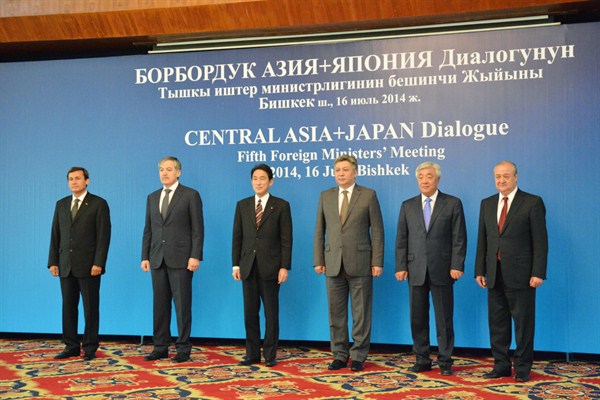Last week, Japan’s Foreign Minister Fumio Kishida met with his Central Asian counterparts in the Kyrgyz capital, Bishkek, as part of the fifth Central Asia Plus Japan (CAPJ) Dialogue. Initiated in 2004, the dialogue has served as the foundation for recent ties between Tokyo and five countries in Central Asia: Kyrgyzstan, Uzbekistan, Kazakhstan, Tajikistan and Turkmenistan. This year’s meeting focused on enhancing economic cooperation in the agricultural and energy sectors, while also discussing potential security collaboration.
Prior to the CAPJ Dialogue, Japan channeled its engagement with the region through its so-called Silk Road Diplomacy, which it launched in 1997 to improve political and economic ties and help Central Asian countries transition to more open economic markets. Since then, Tokyo has provided more than $2 billion in overseas development aid to the region, focused on developing infrastructure, modernizing transportation and improving quality of and access to the water supply. Japanese firms have invested an additional $200 million toward improving technical capabilities.
But energy and trade remain the primary foundations for the Japan-Central Asia relationship. Tokyo is still pressed for energy imports and is actively looking to diversify its partners amid growing instability in the Middle East and uncertainty over the future of its nuclear energy program. Of the CAPJ partners, Japan has the closest energy relationship with Kazakhstan—they recently signed a civil nuclear cooperation agreement—and Uzbekistan. Kazakhstan is Japan’s top trade partner in the region with more than $2 billion in annual trade and more than $6 billion of Japanese foreign direct investment. Uzbekistan is also a key partner in light of joint efforts to develop Tashkent’s uranium deposits.

